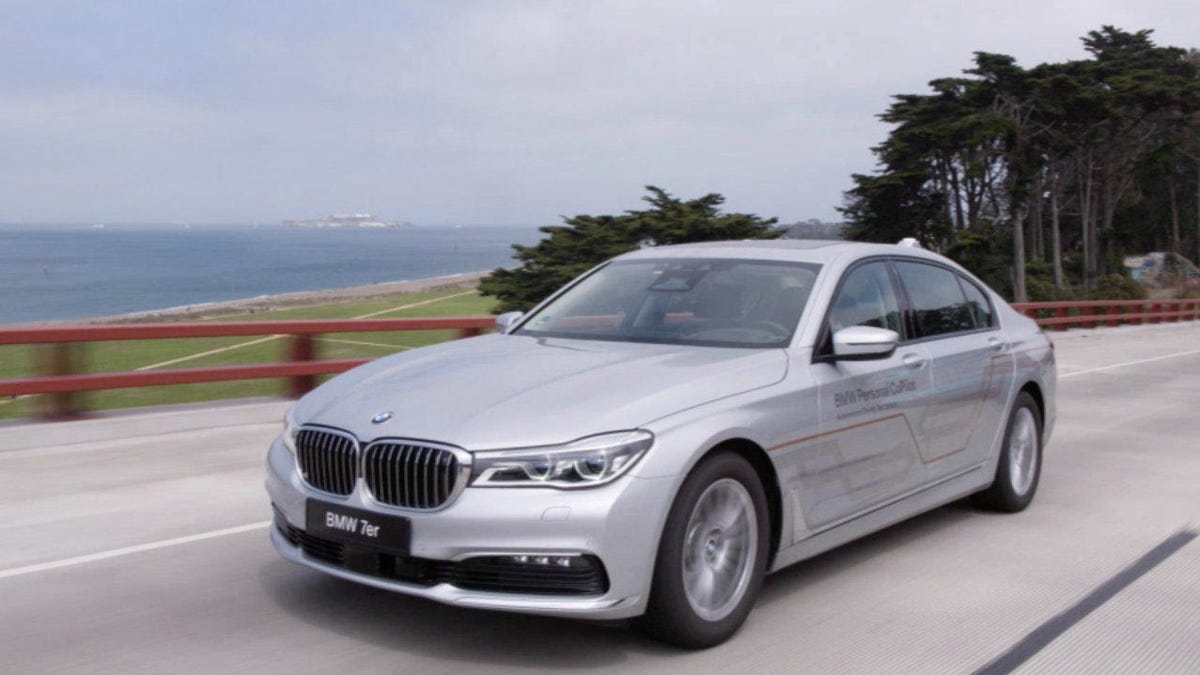BMW to make limited self-driving available in 2021
In a presentation about its self-driving development, BMW said it would enable its cars to drive themselves on highways in 2021.

Given the sophistication of adaptive cruise control and lane-keeping assistance in recent BMW cars, such as the M760i, you would think the company is well on its way to fully self-driving cars . During a presentation on its self-driving timeline, however, Klaus Büttner, BMW's vice president of autonomous driving, emphasized a more cautious approach.
BMW is currently testing self-driving cars on public roads, using the brand Personal CoPilot for the technology.
The next step for BMW will come in 2021, when its cars will be able to drive themselves on specific sections of highway. For example, you will be able to let your new 7-Series drive you down I-5 on the West Coast, I-95 in the East, or I-80 across the country. The car will require you to take over in certain circumstances, such as approaching a construction zone or the off-ramp to your final destination.
Büttner stressed that self-driving in an urban environment would not come until some time later.
Self-driving cars are being developed by a wide range of companies, from automakers to tier 1 equipment suppliers to big technology players, such as Google's sister company Waymo and Apple . The technology could reduce or eliminate the more than 1 million deaths caused by cars around the world each year.
Companies including BMW are currently testing self-driving cars on public roads. A timeline often given for the technology puts 2020 and 2021 as the years when self-driving cars will be production-ready.
BMW's self-driving test vehicles use radar, lidar and cameras to understand their environment and figure out exactly where they are.
BMW's model follows what we've seen from Cadillac and Audi, although Audi is focusing on improving its self-driving system in stop-and-go traffic. Büttner said that BMW's cars will use radar, lidar and cameras, with some technology supplied by its core partners Intel and Mobileye.
The cars' computers store high-definition maps of specific roads created by Here, a digital mapping consortium owned by BMW, Audi and Mercedes-Benz . This type of maps not only show the roads, but also permanent objects, such as buildings and traffic infrastructure.
The car compares what its sensors detect to its stored map, letting it determine its precise location. The map also shows where it is allowed to drive.
When BMW rolls out this new feature, the car will let its driver know when it can drive itself. The driver can choose to let the car take over, after which it will maintain its speed and position in the lane, and make passing maneuvers when necessary. Autonomous driving engineers acknowledge that one of the most troublesome aspects of this technology is getting the driver to resume control. To that end, Büttner is developing warning mechanisms, which could involve a light-up ring in the steering wheel, audio notification, or vibration in the driver seat.
BMW currently has 40 of its 7-Series cars equipped with its prototype self-driving technology testing around Munich, and intends to double that number by the end of 2018, with testing on public roads expanded to the US and China.

